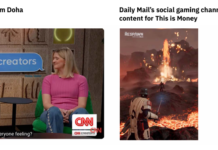Priyanka Tanwar spoke with Leonie Lock, editor at Firefly Press, about content for children’s literature, cover designs for attracting children, challenges during the Covid-19 pandemic, and the fellowship with the British Council.
Edited excerpts from the interview:
Indian Printer & Publisher (IPP) – Tell us about your publishing house Firefly Press.
Leonie Lock – Firefly Press was started by Penny Thomas and Janet Thomas (no relation) in 2013. The publishing house celebrated its 10 years in 2023. And 2024 will be the anniversary of our first publication as well.
We publish books for five to 19-year-old readers. The only restriction we have is that we like to publish quality fiction and non-fiction for children, with a little bit of a focus on Wales and literature coming out of Wales because that’s where we’re based. We think it’s so important to share that sort of identity with everyone.
IPP – How do you select the content for the children’s books that you publish?
Leonie Lock – It’s through submissions, mostly from agents. We don’t have a set list in that and we don’t have a slot for any genre. We go by what we love. If we have an editor who reads a submission that they’re passionate about, we have them on the list. We then look at the list and think if we have anything similar and if it is going to complement what we publish. We lean more toward promoting diversity and inclusiveness.
IPP – Book covers play a key role in attracting children to books. What is the process of selecting covers for your children’s books?
Leonie Lock – It is, yes. Every editor is slightly different and every (publishing) house works slightly differently. I come from a bookselling background. I still am a bookseller so I’m very used to seeing the books that children will pick up based on what they’re looking at.
It’s a conversation with the author about what they thought the cover might look like. We try and take that into account but it’s also about the vibe. For an illustrated title like Major and Mynah by Karen Owen that came out last year, Karen’s writing is very, very funny. It’s very, very pure. She’s got some fantastic characters in there, so we wanted an illustrator who could balance that out with comedy and charm. That’s how we found Louise Forshaw – a bit of word of mouth there, a little bit of searching people on Twitter and LinkedIn. And then going to bookshops and browsing and then building up and working with them and our cover designer in-house to pull it together with the illustration.
IPP – How do you reach out to your audience?
Leonie Lock – It’s kind of the same as most publishers – a combination of maintaining a really good relationship with booksellers, librarians, teachers, and bloggers and through social media. We’ve got a growing social media interest from people and lots of engagement at the moment, particularly because we’re an independent publisher. We can put more focus on the children and more focus on the authors who are creating these stories and people seem to react to that and then they find us.
IPP – Would you like to comment on the children’s publishing industry?
Leonie Lock – Sort of within the UK, in general, it’s very interesting. I think everyone thinks that children’s publishing started with Harry Potter and it didn’t. There’s been children’s publishing through history and obviously, that’s sort of the shape of that has changed. I think we’re in what I like to call the golden age of children’s publishing at the moment because we’re seeing such amazing titles coming out from independent and trade publishers. These titles represent who these children are and where they’re coming from. I think we’ve got such a wonderful opportunity now to grow and to cover, and bring in international experiences within the UK. We’re starting to see that happen – things like Onyeka and the Academy of the Sun by Tolá Okogwu, which is a gorgeous book set in Nigeria, by a Nigerian author. We’re starting to see those come in but I’d like to see more of that. I think we are in the golden age but with room to expand.
IPP – Are you planning to enter the Indian publishing industry?
Leonie Lock – No comment. We’re still working on things at the moment. The British Council has been brilliant at helping to formulate that and helping us make these connections that we can bring together. Hopefully, in the future, we will continue to develop that relationship.
IPP – How did the Covid-19 pandemic affect your operations?
Leonie Lock – We’re a small independent press. We were already working from home. When the pandemic started, the publishers were working from home already. There was a lot of worry across the entire industry, not just for us, about how that was going to impact book sales, how that was going to impact trade, and whether that was going to drive people online. Luckily, people are returning to the bookshops. If you look at the figures being published from, say Waterstones, I believe they just had 40 million pounds as their profit for 2022 as reported by The Bookseller. Whereas the year before (2021) during the pandemic, it was 2.1. They’ve had a massive growth during that time, not quite to pre-pandemic levels but I think we’re getting there, which is encouraging.
IPP – During the pandemic, most of the bookstores were closed. How did you reach out to the kids during that time?
Leonie Lock – It was mostly through social media and engagement and using our authors. In the UK, lots of our audience follow the authors that they’re interested in. For example, Jennifer Killick, who wrote Crater Lake. Before that, she had a series with us about a boy called Alex Sparrow. She has an amazing Twitter following and we were helping to support her with things there and also just trying to do as many online events as possible. We launched Daydreams and Jellybeans by Alex Wharton who is a fantastic, phenomenal South Wales poet. He’s so engaging that he managed to translate that through the screen and I think that managed to captivate that younger audience and just kept that interest during the pandemic.
IPP – How was the experience at the Jaipur BookMark?
Leonie Lock – It’s been phenomenal here – it’s so great to see people who are just so passionate about literature in general, wherever they come from.
I’d like to see more of the children’s scene happening here. I haven’t seen too much yet but I’ve had a few really interesting conversations, which has been nice. I think it’d be interesting to see how this develops in the future as well.
IPP – Would you like to comment on your association with the British Council?
Leonie Lock – The British Council has been phenomenal and their support and the structure of this fellowship have been invaluable. They’re very, very passionate about what they do and about the season of culture and the relationship between the UK and India as part of that.
Thank you to everyone here in India for being so welcoming and everyone who’s part of the fellowship for just being truly amazing and supportive and just helping me not only follow my dreams but realize my dreams. I think that’s what this has done, it’s not helped me follow them, it’s helped me realize them and I think it’s just been amazing.


















